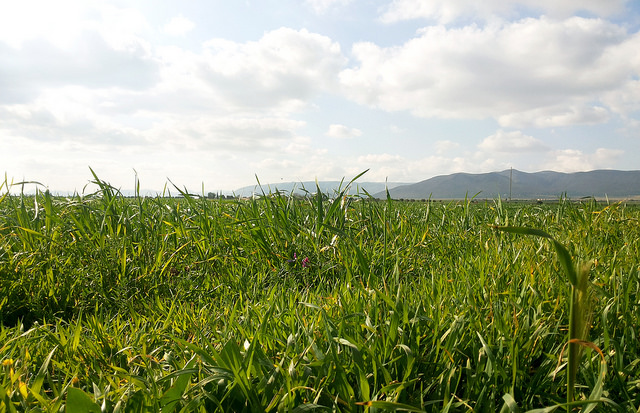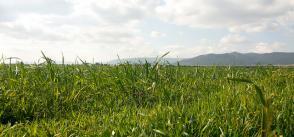
Shaking up salt-friendly agriculture
Scientists look to the past for food security solutions.
Humanity needs innovative agricultural approaches to face the food shortages posed by changing climate patterns and a global population expected to reach nearly 10 billion by 2050. Agricultural output must keep pace, but the productivity of more than a billion hectares of land is limited by salinity. Freshwater resources are also strained by overuse and climate change, to which the Middle East is especially vulnerable.
Desalination is a partial solution, but it’s unlikely to provide enough freshwater.
To close the gap, scientists in the region are looking to the wilderness and adapting and adopting ancient agricultural practices.
“Irrigated systems produce about a third of the world’s food, but they’re all unsustainable systems at the moment,” says Mark Tester, head of the SALTLAB at King Abdullah University of Science and Technology. “Every groundwater aquifer that’s being used for irrigation is being depleted. This is very clearly documented and is a massive concern. There’s an imperative to change our current agricultural system.”
Tester believes part of the solution can be found in the wild relatives of crops.
During domestication, crop plants were bred for greater productivity and convenience, not durability. While our major crops do poorly in drought or salty water, some of their relatives grow well on poor soils and unreliable or low-quality water. For Tester, the genomes of these plants are a treasure trove which scientists and breeders can use to make crops more resilient.
Read the full article by Sedeer el-Showk via Nature Middle East.
[Photo by Soufiane M | Flickr]







